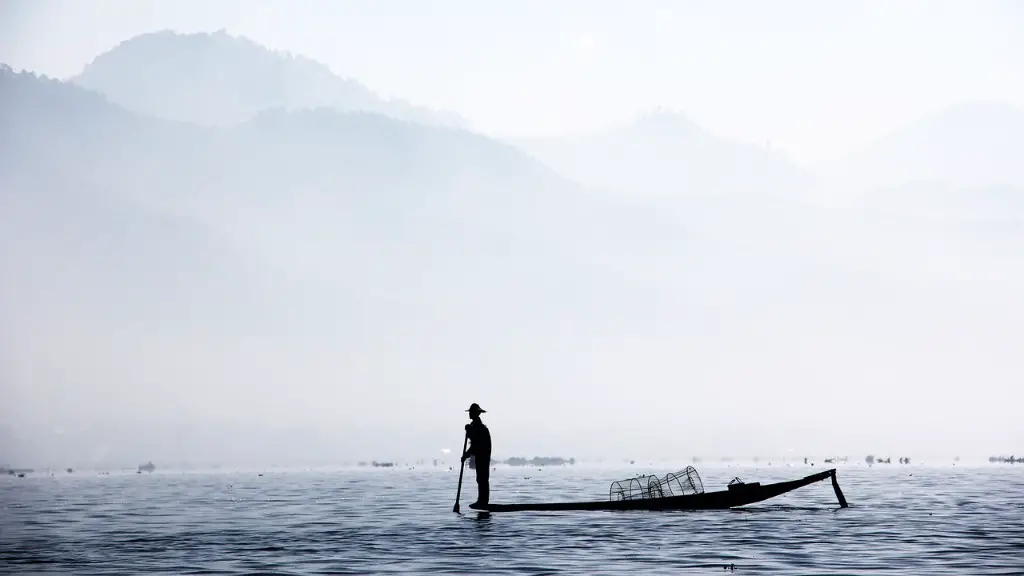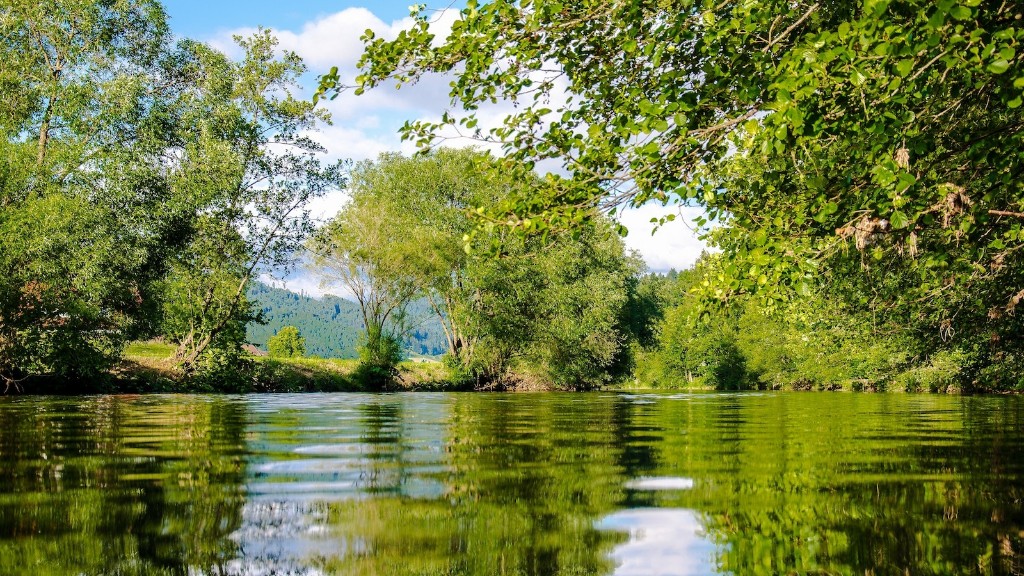Overview of Lake Baikal
Lake Baikal, located in Siberia, is the deepest and oldest lake in the world. It holds one-fifth of the world’s surface freshwater and is surrounded by majestic mountain ranges. It is home to 1682 species of plants and animals, most of which are found nowhere else in the world. Many of these species are endemic, meaning they can only be found within the boundaries of Lake Baikal. The lake is also a popular tourist attraction, boasting diverse activities ranging from skiing and trekking to exploring its many caves.
What Makes Lake Baikal Unique?
Lake Baikal is a truly unique place. First, its sheer size and age give it a place of importance in the world’s lakes. Second, it is the most species-rich lake in the world and has more endemic species than any other freshwater lake. Third, its unique geography and topography create unique environmental conditions that have enabled the evolution of these unique species.
The uniqueness of Lake Baikal comes from its ancient geography. The lake has been around for 25 million years and is still growing deeper as the tectonic plates that make up the region move apart at a rate of 1mm per year. It is one of the clearest and most unpolluted lakes in the world, and its deep and cold waters are naturally oxygenated. This makes it home to many species of fish and other organisms that are found nowhere else.
The lake is also home to its own unique ecosystem. The waters of Lake Baikal are nutrient-rich, and the lake is strongly influenced by the seasonal monsoon rains. This makes it an ideal environment for the development of a range of species which feed off the abundant organisms in the lake. In addition, its steep shoreline, deep channels and tranquil surface make up a unique landscape that supports a number of endemic plants and animals.
Environmental Challenges Facing Lake Baikal
As Lake Baikal is so unique, environmental challenges pose a great threat to its ecosystem. Pollution from industry and nearby cities is a major concern, as is acid rain and non-native species. Climate change is also having an increasing impact on the lake, and the consequent rise in water levels could lead to further damage to its delicate ecosystem.
Since 2008, the protection of Lake Baikal has been a priority for the local and federal Russian governments. A number of measures have been enacted to help alleviate the impacts of pollution, such as increased fines and stricter regulations. In addition, the lake has been included in the Ramsar Convention, an international treaty designed to protect important wetland sites. Despite these measures, however, the environment of Lake Baikal remains vulnerable, and the future of its unique ecosystems is uncertain.
What Can Be Done to Protect Lake Baikal?
The protection of Lake Baikal is of utmost importance, and there are a number of measures that can be taken to ensure its future. The first is to reduce pollution in the region by rerouting problematic industrial effluent and encouraging citizens to try to reduce their plastic waste.
In addition, increased education and awareness of the importance of Lake Baikal is key. This could include increased public outreach and communication, better access to information on the lake’s ecosystem and threats to it, and the implementation of education programs for local people, tourists, and scientists. Finally, collaborations between the local and federal governments and international organizations are essential for the effective long-term protection of the lake.
The Role of Tourism in the Protection of Lake Baikal
Tourism has a vital role to play in the protection of Lake Baikal. Tourism provides a platform to spread awareness of the importance of the lake’s ecosystems and the need to protect them. Furthermore, it can provide an economic incentive to preserve the lake and its resources.
Tourism should be carefully managed, however, to ensure it does not cause further damage to the lake. Sites should be provided with educational activities so that tourists have the opportunity to learn more about the lake and the species that call it home. Furthermore, regulations should be enforced to reduce tourist traffic and limit environmental damage.
Concerns of Local Communities Living On Lake Baikal
Local communities living on Lake Baikal are often unaware of the threats facing their lake. They are also often subject to coercive tactics from the provincial and federal authorities, leading to a lack of trust between the local people and the authorities. This means that the local communities are often left without a voice or influence in decisions about the future of their lake.
To address this, there needs to be a greater effort to engage with the local communities and ensure that their voices are heard. This could be through increased dialogue between the governments and local communities as well as collaborative decision-making. In addition, greater support for local groups in their efforts to protect the lake would be beneficial.
Conclusion
Lake Baikal is a unique and important ecosystem that deserves to be protect. It is home to many species of plants and animals, most of which can only be found here, and its ancient geography provides a unique environment. Despite protective measures, the lake still faces threats from pollution and climate change, and greater efforts must be made to ensure its future. Tourists can play an important role in this by learning more about the lake while exploring it and by taking steps to reduce their environmental impact. Furthermore, greater efforts must be made to engage with local communities and ensure that their voices are included in decisions about the future of the lake.

